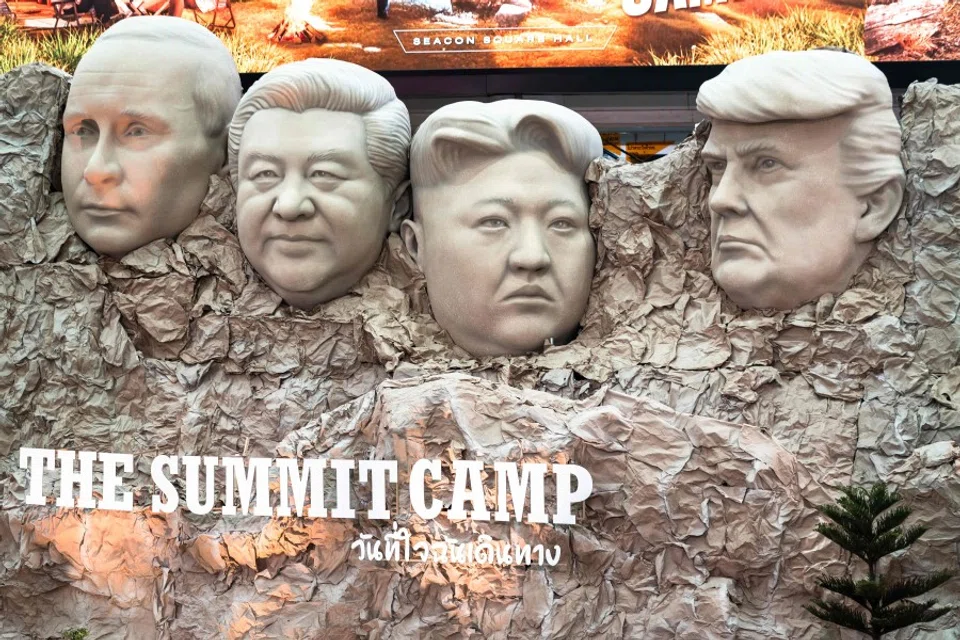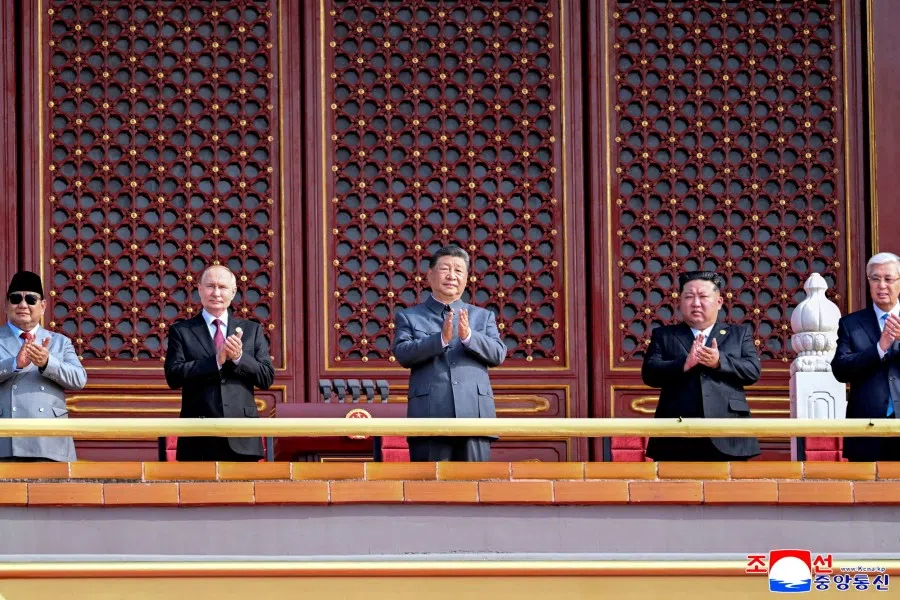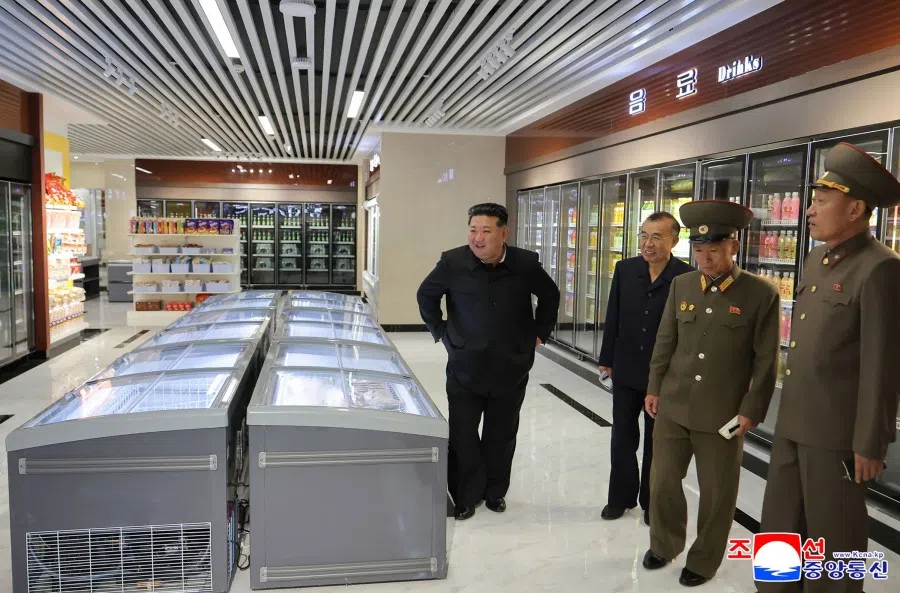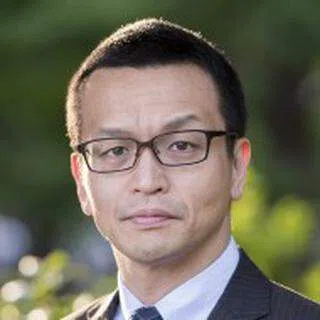Eyes on the great powers: How North Korea navigates China, Russia and the US
Kim Jong Un zeroes in on China, Russia and the US, balancing alliances and flexing nuclear power as he shapes North Korea’s future on the global stage. Japanese academic Atsuhito Isozaki examines the possibilities.

Since Russia’s invasion of Ukraine, North Korea has consistently supported the regime of Russian President Vladimir Putin. Thanks to this support, a Cold War-era military alliance was reestablished last year, and North Korea has earned significant amounts of foreign currency from Russia through massive arms exports and troop deployments.
People who have recently visited North Korea all say that there are no longer any power outages in Pyongyang. If true, this would be a remarkable achievement for the country, which has suffered energy shortages since its founding. The apparent improvement in North Korea’s energy supply suggests that economic sanctions have become largely ineffective. It is no surprise that North Korea has adopted a “Russia-centric foreign policy”.
However, this war boom will not last forever. Since US President Donald Trump began mediating a ceasefire in the Russia–Ukraine war, North Korea has quickly moved to repair relations with China. As a nation built on the idea of Juche (self-reliance), a diplomacy dependent on a single country is undesirable.
North Korea maintains that the best way to pursue an independent course is through balanced diplomacy with both neighbours, China and Russia, while keeping a certain distance from each of them. The administration argues that maintaining this balance during the Cold War prevented the country from being swept away by reform and opening, and from collapsing.
An honoured guest, a rare appearance
On 3 September, a military parade was held in Beijing as part of a major initiative by Chinese President Xi Jinping, with the top leaders of China, Russia, and North Korea standing side by side on the parade platform at Tiananmen Square. However, the three countries’ intentions are not necessarily aligned.
This was the first time North Korean leader Kim Jong Un had appeared at a multilateral diplomatic event, and it was only possible because he was treated as an honoured guest on the same level as Putin...
China extended invitations to other countries to participate, and South Korea responded by sending the speaker of its National Assembly. This cautious approach contrasts with South Korea’s attendance at the 70th anniversary event in 2015, when then President Park Geun-hye represented the country. The difference highlights a persistent wariness among South Koreans — both progressive and conservative — towards China’s actions, setting them apart from attitudes in Japan and the US.

This was the first time North Korean leader Kim Jong Un had appeared at a multilateral diplomatic event, and it was only possible because he was treated as an honoured guest on the same level as Putin, allowing the North Korean people to see their leader standing on an equal footing with the leaders of such great powers as China and Russia.
North Korean television service Korean Central Television (KCTV) meticulously covered the arrival of more than 20 national leaders at Tiananmen Square, providing subtitles with their names and titles. The broadcast repeatedly portrayed the leaders of China, North Korea, and Russia as leading the other participants. This was the very definition of Uidaeseong SeonJeon (“propaganda of greatness”), so highly valued by North Korean media.
... no three-way meeting between China, North Korea, and Russia was held this time. North Korea wanted one, but China flatly refused.
This was the first time the leaders of China, North Korea, and Russia had stood together since the 10th anniversary of the founding of the People’s Republic of China in October 1959. At that time in Tiananmen Square, Mao Zedong was flanked by Soviet Premier Nikita Khrushchev and Vietnamese President Ho Chi Minh. Standing next to Ho were Soviet No. 2 Mikhail Suslov, Chinese Premier Zhou Enlai and North Korean Premier Kim Il Sung.
Unlike that earlier gathering, no three-way meeting between China, North Korea, and Russia was held this time. North Korea wanted one, but China flatly refused. This is understandable given the different tones of “anti-American sentiment” among Russia, North Korea, and China.
Only for the great powers
Kim Il Sung, the founding president of North Korea and the grandfather of current leader Kim Jong Un, made his last appearance at a multilateral diplomatic forum at the funeral of Yugoslav President Josip Broz Tito in May 1980.
While in Belgrade, he held a series of bilateral meetings with major world leaders, including Hua Guofeng, then chairman of the Chinese Communist Party; Leonid Brezhnev, chairman of the Praesidium of the Supreme Soviet; Nicolae Ceaușescu, president of Romania; as well as leaders from Pakistan, Bangladesh, Zambia, Tanzania and Zimbabwe. This stands in contrast to President Kim Jong Un, who on this occasion held summits only with China and Russia.
This shows that Kim Jong Un has eyes only for the great powers. There is no doubt that this reflects his growing confidence as a nuclear power.

The end of the Cold War drastically shrank the number of countries maintaining diplomatic relations with North Korea. However, through the active diplomacy of Kim Jong Il — who served as Chairman of the National Defence Commission and became North Korea’s second supreme leader after his father Kim Il Sung’s death in 1994 — the country has since established diplomatic ties with over 80% of UN member states.
Kim Jong Un could have held as many bilateral meetings as he wanted on this occasion. Yet he did not even meet with the leader of Cuba, whom he had previously met in Pyongyang, or with the leader of Belarus, with whom North Korea has a quasi-alliance through Russia. This shows that Kim Jong Un has eyes only for the great powers. There is no doubt that this reflects his growing confidence as a nuclear power.
Preparing for US
During their summit, Kim Jong Un and Xi Jinping exchanged views on “enhancing strategic communication”. This suggests that while North Korea has maintained a close relationship with Russia, its communication with China has been relatively limited. According to China’s announcement, Kim Jong Un also expressed a desire to revive trade between North Korea and China — another reason behind North Korea’s early move towards balanced diplomacy.
Restoring relations with China will also help North Korea prepare for the potential resumption of talks with the US.
Restoring relations with China will also help North Korea prepare for the potential resumption of talks with the US. With Trump’s unpredictable statements about North Korea, there’s a chance he might seek a major legacy by offering significant concessions — possibly even proposing the normalisation of diplomatic relations. Anticipating such a surprise move, North Korea needs to strengthen ties with its allies beforehand.





![[Big read] When the Arctic opens, what happens to Singapore?](https://cassette.sphdigital.com.sg/image/thinkchina/da65edebca34645c711c55e83e9877109b3c53847ebb1305573974651df1d13a)